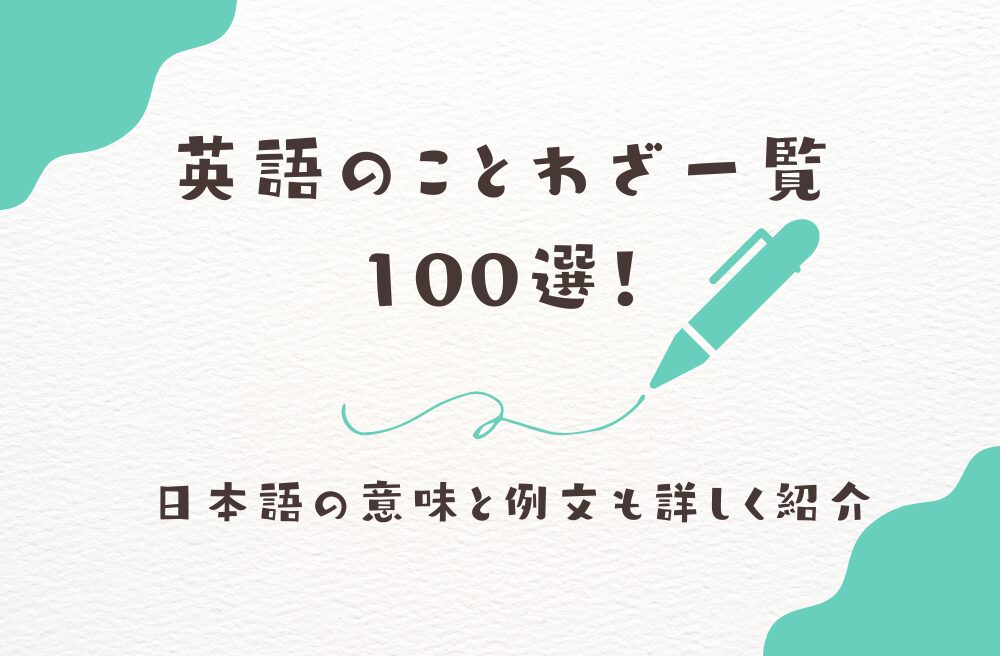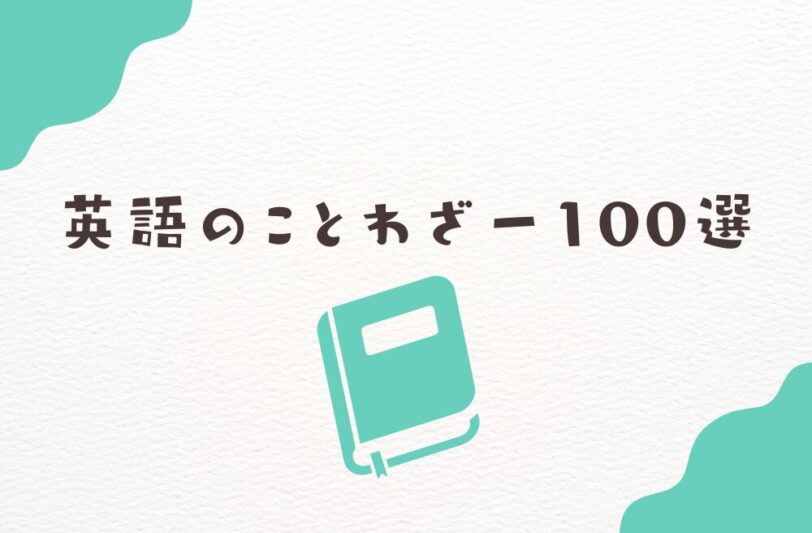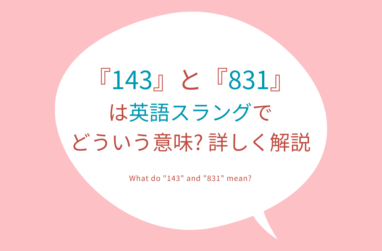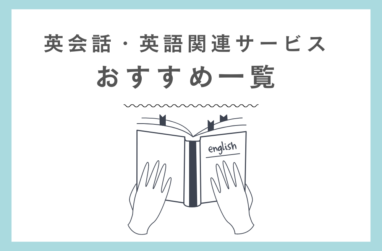英語のことわざ一覧100選!日本語の意味と例文も詳しく紹介

ことわざは、その国の文化や価値観、先人の教え・知恵を簡潔に表した言葉です。
日本語には多くのことわざがありますよね。
実は、英語にも日本語と同じように、多くのことわざが存在します。
今回の記事では、日常会話やビジネスシーンで役立つ英語のことわざ100選を一覧でご紹介します。
それぞれのことわざについて、日本語訳、意味、同じまたは近い意味を持つ日本のことわざ、さらに実際の使い方がわかる例文も掲載しています。英語学習の参考にぜひご活用ください!
- 英語のことわざ一覧100選。それらの日本語訳、意味、同じまたは近い意味を持つ日本のことわざ、例文を詳しく紹介しています。
✓この記事の筆者と信頼性

この記事は、英語学習に精通したライターが執筆した記事をEnglish shift編集部が再編集・監修した記事です。
英語のことわざ一覧100選

では、英語のことわざを一覧で100個紹介していきます。
- Life is not all roses.
- Where there is a will, there is a way.
- You reap what you sow.
- Actions speak louder than words.
- Fortune favors the bold.
- All that glitters is not gold.
- The grass is always greener on the other side.
- Rome was not built in a day.
- No pain, no gain.
- Better late than never.
- A journey of a thousand miles begins with a single step.
- Do not put all your eggs in one basket.
- God helps those who help themselves.
- The early bird catches the worm.
- Haste makes waste.
- Honesty is the best policy.
- Look before you leap.
- A penny for your thoughts.
- A picture is worth a thousand words.
- Beggars can’t be choosers.
- Don’t count your chickens before they hatch.
- When the cat’s away, the mice will play.
- The squeaky wheel gets the grease.
- The pot calling the kettle black.
- You can’t teach an old dog new tricks.
- Too many cooks spoil the broth.
- Curiosity killed the cat.
- A watched pot never boils.
- The apple doesn’t fall far from the tree.
- Every man for himself.
- Laughter is the best medicine.
- Don’t cry over spilled milk.
- When in Rome, do as the Romans do.
- The pen is mightier than the sword.
- Out of sight, out of mind.
- Easy come, easy go.
- Necessity is the mother of invention.
- Jack of all trades, master of none.
- Birds of a feather flock together.
- A chain is only as strong as its weakest link.
- An eye for an eye, a tooth for a tooth.
- Don’t put the cart before the horse.
- A fool and his money are soon parted.
- Don’t judge a book by its cover.
- Time heals all wounds.
- All good things must come to an end.
- Practice makes perfect.
- A rolling stone gathers no moss.
- What goes around, comes around.
- Two heads are better than one.
- Don’t bite the hand that feeds you.
- Let sleeping dogs lie.
- Strike while the iron is hot.
- The ball is in your court.
- Barking up the wrong tree.
- Every cloud has a silver lining.
- You can’t have your cake and eat it too.
- Live and let live.
- Absence makes the heart grow fonder.
- A penny saved is a penny earned.
- Better safe than sorry.
- The proof of the pudding is in the eating.
- Many hands make light work.
- Great minds think alike.
- Every dog has its day.
- Don’t cry before you’re hurt.
- Speak softly and carry a big stick.
- Make hay while the sun shines.
- No use crying over spilled milk.
- A friend to all is a friend to none.
- A little knowledge is a dangerous thing.
- The early bird catches the worm.
- Don’t bite off more than you can chew.
- If it ain’t broke, don’t fix it.
- The devil is in the details.
- You can lead a horse to water, but you can’t make it drink.
- Good things come to those who wait.
- Hope for the best, but prepare for the worst.
- A friend in need is a friend indeed.
- What’s done is done.
- Time waits for no one.
- Knowledge is power.
- A stitch in time saves nine.
- Silence is golden.
- Hindsight is 20/20.
- The best things in life are free.
- Keep your friends close and your enemies closer.
- The customer is always right.
- Laughter is the best medicine.
- The ends justify the means.
- The early bird catches the worm.
- A penny saved is a penny earned.
- A fool and his money are soon parted.
- Don’t count your chickens before they hatch.
- Don’t put all your eggs in one basket.
- Every cloud has a silver lining.
- Look before you leap.
- Practice makes perfect.
- You can’t have your cake and eat it too.
- The ends justify the means.
ちょっとオンライン英会話を試してみたいなら、以下の記事をチェックしてみてください!
Life is not all roses.
1つ目は、「Life is not all roses.」です。
日本語訳: 人生はすべてバラではない。
日本語の意味: 人生には楽しいこともあれば、苦しいこともある。
同じ(近い)意味の日本のことわざ:「人生山あり谷あり」
- Life is not all roses; you must work hard to achieve your dreams.
(人生はすべてが順調なわけではない。夢を叶えるには努力が必要だ。) - He thought moving abroad would be easy, but he quickly realized that life is not all roses.
(彼は海外移住が簡単だと思っていたが、人生は甘くないとすぐに気づいた。) - She learned the hard way that life is not all roses when she started her own business.
(彼女は自分でビジネスを始めたとき、人生は楽ではないことを身をもって学んだ。)
Where there is a will, there is a way.
2つ目は、「Where there is a will, there is a way.」です。
日本語訳: 意志があるところに道がある。
日本語の意味: 強い意志を持てば、必ず方法は見つかる。
同じ(近い)意味の日本のことわざ: 「意思あるところに道は開ける」
- If you really want to pass the exam, you will find a way. Where there is a will, there is a way.
(本当に試験に合格したいなら、方法は見つかる。意志あるところに道は開ける。) - He never gave up on his dream because he believed that where there is a will, there is a way.
(彼は「意思あるところに道は開ける」と信じていたので、夢を決して諦めなかった。) - She overcame many obstacles because she knew that where there is a will, there is a way.
(彼女は多くの障害を乗り越えた。強い意志があれば道は開けると知っていたからだ。)
You reap what you sow.
3つ目は、「You reap what you sow.」です。
日本語訳: あなたは蒔いたものを刈り取る。
日本語の意味: 自分の行いの結果は自分に返ってくる。
同じ(近い)意味の日本のことわざ: 「因果応報」「自業自得」
- He failed the test because he didn’t study. You reap what you sow.
(彼は勉強しなかったので試験に落ちた。自業自得だ。) - She always helps others, and now people support her in return. You reap what you sow.
(彼女はいつも人を助けているので、今は周りの人が彼女を助けている。因果応報だ。) - If you work hard, you will be rewarded. You reap what you sow.
(努力すれば報われる。自分の行いが結果を生む。)
Actions speak louder than words.
4つ目は、「Actions speak louder than words.」です。
日本語訳: 行動は言葉よりも雄弁である。
日本語の意味: 口で言うだけではなく、実際の行動が大切である。
同じ(近い)意味の日本のことわざ: 「言うは易く行うは難し」
- Don’t just promise to change—do something! Actions speak louder than words.
(ただ変わると約束するだけでなく、実際に行動しなさい!言葉より行動が大事だ。) - He always talks about being kind, but he never helps others. Actions speak louder than words.
(彼はいつも親切であることを語るが、実際に助けようとしない。言葉より行動だ。) - Instead of making excuses, show your efforts. Actions speak louder than words.
(言い訳をするよりも努力を見せろ。行動が言葉より雄弁だ。)
Fortune favors the bold.
5つ目は、「Fortune favors the bold.」です。
日本語訳: 運は大胆な者に味方する。
日本語の意味: 勇気を持って挑戦する人には幸運が訪れる。
同じ(近い)意味の日本のことわざ: 「当たって砕けろ」「虎穴に入らずんば虎子を得ず」
- He took a risk and started his own business. Fortune favors the bold.
(彼はリスクを取って起業した。運は大胆な者に味方する。) - If you want to succeed, you must take chances. Fortune favors the bold.
(成功したいなら、リスクを恐れず挑戦しなければならない。運は大胆な者に味方する。) - She applied for a high-level job even though she felt unqualified. Fortune favors the bold.
(彼女は自分には難しいと思いつつも、高レベルな仕事に応募した。運は勇敢な者に味方する。)
All that glitters is not gold.
6つ目は、「All that glitters is not gold.」です。
日本語訳: 輝くものすべてが金とは限らない。
日本語の意味: 見た目が良いものが必ずしも価値があるとは限らない。
同じ(近い)意味の日本のことわざ: 「見かけによらぬは男の器」「光るもの必ずしも金ならず」
- That expensive-looking handbag turned out to be fake. All that glitters is not gold.
(その高級そうなハンドバッグは偽物だった。見た目が良いものが価値があるとは限らない。) - He seemed trustworthy, but he lied to everyone. All that glitters is not gold.
(彼は信用できそうに見えたが、皆に嘘をついていた。光るものすべてが金ではない。) - She learned that appearances can be deceiving. All that glitters is not gold.
(彼女は、見た目に惑わされてはいけないと学んだ。見かけによらぬは男の器。)
The grass is always greener on the other side.
7つ目は、「The grass is always greener on the other side.」です。
日本語訳: 隣の芝生はいつも青い。
日本語の意味: 他人の状況が自分より良く見えるが、実際はそうとは限らない。
同じ(近い)意味の日本のことわざ: 「隣の芝生は青い」
- He quit his job thinking another one would be better, but it wasn’t. The grass is always greener on the other side.
(彼は他の仕事の方が良いと思い辞めたが、そうではなかった。隣の芝生は青く見える。) - She thought her friend’s life was perfect, but everyone has struggles. The grass is always greener on the other side.
(彼女は友人の人生が完璧だと思っていたが、誰にでも苦労はあるものだ。隣の芝生は青い。) - People often envy what they don’t have. The grass is always greener on the other side.
(人はよく、自分にないものを羨むものだ。隣の芝生は青く見える。)
Rome was not built in a day.
8つ目は、「Rome was not built in a day.」です。
日本語訳: ローマは一日にして成らず。
日本語の意味: 大きな成功や偉業は時間をかけて築かれるもの。
同じ(近い)意味の日本のことわざ: 「千里の道も一歩から」
- Learning a new language takes time. Rome was not built in a day.
(新しい言語を学ぶには時間がかかる。ローマは一日にして成らず。) - He worked hard for years before becoming a great musician. Rome was not built in a day.
(彼は偉大な音楽家になるまで何年も努力した。千里の道も一歩から。) - Patience is key when working toward your dreams. Rome was not built in a day.
(夢を追うには忍耐が大切だ。ローマは一日にして成らず。)
No pain, no gain.
9つ目は、「No pain, no gain.」です。
日本語訳: 痛みなくして得るものなし。
日本語の意味: 成功には努力や苦労が必要である。
同じ(近い)意味の日本のことわざ: 「苦あれば楽あり」
- He exercises every day because he believes in “No pain, no gain.”
(彼は「苦労なくして得るものなし」と信じているので、毎日運動している。) - She studied all night for the test. No pain, no gain.
(彼女は試験のために徹夜で勉強した。努力なくして成果なし。) - If you want to achieve something, you must work for it. No pain, no gain.
(何かを成し遂げたいなら、努力しなければならない。苦労なくして得るものなし。)
Better late than never.
10個目は、「Better late than never.」です。
日本語訳: 遅くてもやらないよりは良い。
日本語の意味: 遅れても、何もしないよりはマシである。
同じ(近い)意味の日本のことわざ: 「遅れてもやらぬよりはまし」
- He finally apologized after years. Better late than never.
(彼は何年も経ってようやく謝罪した。遅くてもやらないよりは良い。) - She started learning piano at 50. Better late than never.
(彼女は50歳でピアノを習い始めた。遅くてもやらないよりはまし。) - He finished the project late, but at least he did it. Better late than never.
(彼はプロジェクトを遅れて終えたが、やらないよりは良かった。)
A journey of a thousand miles begins with a single step.
11個目は、「A journey of a thousand miles begins with a single step.」です。
日本語訳: 千里の旅も一歩から始まる。
日本語の意味: どんなに大きな目標も、小さな一歩から始まる。
同じ(近い)意味の日本のことわざ: 「千里の道も一歩から」
- If you want to achieve your goals, start now. A journey of a thousand miles begins with a single step.
(目標を達成したいなら、今すぐ始めよう。千里の道も一歩から。) - He was nervous about starting his new business, but he remembered: A journey of a thousand miles begins with a single step.
(彼は新しいビジネスを始めるのが不安だったが、「千里の道も一歩から」と思い出した。) - Every great achievement starts somewhere. A journey of a thousand miles begins with a single step.
(どんな偉業も、どこかから始まる。千里の道も一歩から。)
Do not put all your eggs in one basket.
12個目は、「Do not put all your eggs in one basket.」です。
日本語訳: すべての卵を一つのカゴに入れるな。
日本語の意味: 一つの選択肢に全てを賭けるのは危険なので、リスクを分散するべきである。
同じ(近い)意味の日本のことわざ: 「一つの賽にすべてをかけるな」
- Investing in only one stock is risky. Do not put all your eggs in one basket.
(1つの株に全財産を投資するのはリスクが高い。すべての卵を1つのカゴに入れるな。) - He applied to multiple universities because he knew: Do not put all your eggs in one basket.
(彼は複数の大学に願書を出した。「すべてを1つの選択肢に賭けるのは危険だ」と知っていたからだ。) - To reduce risks, businesses should diversify. Do not put all your eggs in one basket.
(リスクを減らすために、企業は事業を分散すべきだ。すべての卵を1つのカゴに入れるな。)
God helps those who help themselves.
13個目は、「God helps those who help themselves.」です。
日本語訳: 神は自ら助ける者を助ける。
日本語の意味: 努力する人には、幸運や助けが訪れる。
同じ(近い)意味の日本のことわざ: 「天は自ら助くる者を助く」
- She worked hard for her dreams. God helps those who help themselves.
(彼女は夢のために努力した。神は自ら助ける者を助く。) - If you want success, you must make an effort. God helps those who help themselves.
(成功を望むなら、努力しなければならない。神は自ら助ける者を助く。) - He didn’t wait for luck; he made his own opportunities. God helps those who help themselves.
(彼は幸運を待たず、自分でチャンスを作った。神は自ら助ける者を助く。)
The early bird catches the worm.
14個目は、「The early bird catches the worm.」です。
日本語訳: 早起きの鳥が虫を捕まえる。
日本語の意味: 早く行動すれば、それだけ成功のチャンスが増える。
同じ(近い)意味の日本のことわざ: 「早起きは三文の徳」
- If you want to get the best deals, shop early. The early bird catches the worm.
(お得な買い物をしたいなら、早めに行動しよう。早起きは三文の徳。) - He arrived at the interview before anyone else. The early bird catches the worm.
(彼は誰よりも早く面接に到着した。早起きの鳥は虫を捕まえる。) - She starts her workday at 5 AM. The early bird catches the worm.
(彼女は朝5時に仕事を始める。早起きは三文の徳。)
Haste makes waste.
15個目は、「Haste makes waste.」です。
日本語訳: 急ぐと無駄が生じる。
日本語の意味: 焦るとミスが増え、かえって時間や労力を浪費することになる。
同じ(近い)意味の日本のことわざ: 「急がば回れ」
- He rushed his project and made many mistakes. Haste makes waste.
(彼は急いでプロジェクトを仕上げたが、多くのミスをした。急がば回れ。) - She always double-checks her work because she knows: Haste makes waste.
(彼女はいつも仕事を再確認する。「急ぐと無駄が生じる」と知っているからだ。) - Driving too fast can lead to accidents. Haste makes waste.
(スピードを出しすぎると事故につながる。急がば回れ。)
Honesty is the best policy.
16個目は、「Honesty is the best policy.」です。
日本語訳: 正直が最良の策。
日本語の意味: 正直でいることが最も良い結果を生む。
同じ(近い)意味の日本のことわざ: 「正直は最良の策」
- He admitted his mistake because he believes honesty is the best policy.
(彼は自分のミスを認めた。正直が最良の策だと信じているからだ。) - If you want to build trust, always tell the truth. Honesty is the best policy.
(信頼を築きたいなら、常に正直であるべきだ。正直は最良の策。) - She got the job because she was honest in the interview. Honesty is the best policy.
(彼女は面接で正直に話したため、仕事を得ることができた。正直は最良の策。)
Look before you leap.
17個目は、「Look before you leap.」です。
日本語訳: 飛ぶ前に見よ。
日本語の意味: 何かをする前に慎重に考えるべきである。
同じ(近い)意味の日本のことわざ: 「石橋を叩いて渡る」
- He researched thoroughly before making a decision. Look before you leap.
(彼は決断する前に徹底的に調査した。石橋を叩いて渡る。) - Don’t rush into a business deal without checking everything first. Look before you leap.
(すべてを確認せずにビジネス契約を急ぐな。石橋を叩いて渡れ。) - She hesitated before making a big purchase. Look before you leap.
(彼女は大きな買い物をする前に慎重に考えた。飛ぶ前によく見よ。)
A penny for your thoughts.
18個目は、「A penny for your thoughts.」です。
日本語訳: あなたの考えに1ペニー。
日本語の意味: 相手が何を考えているのかを尋ねるときに使う。
同じ(近い)意味の日本語: 「何を考えているの?」
- You seem deep in thought. A penny for your thoughts?
(何か考え込んでいるね。何を考えているの?) - She looked distracted, so I said, “A penny for your thoughts.”
(彼女がぼんやりしていたので、「何を考えているの?」と聞いた。) - He was staring out the window, so I asked, “A penny for your thoughts?”
(彼が窓の外を見つめていたので、「何を考えているの?」と尋ねた。)
A picture is worth a thousand words.
19個目は、「A picture is worth a thousand words.」です。
日本語訳: 一枚の絵は千の言葉に値する。
日本語の意味: 言葉よりも視覚的な情報の方が、より多くのことを伝えられる。
同じ(近い)意味の日本のことわざ: 「百聞は一見に如かず」
- Instead of explaining, he showed a diagram. A picture is worth a thousand words.
(説明する代わりに、彼は図を見せた。百聞は一見に如かず。) - The before-and-after photos were convincing. A picture is worth a thousand words.
(ビフォーアフターの写真が説得力を持っていた。百聞は一見に如かず。) - She took a picture of the sunset to capture its beauty. A picture is worth a thousand words.
(彼女は夕日の美しさを伝えるために写真を撮った。百聞は一見に如かず。)
Beggars can’t be choosers.
20個目は、「Beggars can’t be choosers.」です。
日本語訳: 物乞いは選り好みできない。
日本語の意味: 何かをもらう立場の人は、それに対して文句を言えない。
同じ(近い)意味の日本語: 「与えられるものに文句を言うな」
- He complained about the free meal, but beggars can’t be choosers.
(彼は無料の食事に文句を言ったが、与えられるものに文句は言えない。) - She wanted a higher salary, but she needed a job. Beggars can’t be choosers.
(彼女はもっと高い給料を望んでいたが、とにかく仕事が必要だった。選り好みはできない。) - If you’re asking for help, take what you can get. Beggars can’t be choosers.
(助けを求めているなら、与えられたものを受け入れなさい。選り好みはできない。)
Don’t count your chickens before they hatch.
21個目は、「Don’t count your chickens before they hatch.」です。
日本語訳: 卵が孵化する前にヒナの数を数えるな。
日本語の意味: 確実でないうちに期待しすぎると、がっかりすることになる。
同じ(近い)意味の日本のことわざ: 「取らぬ狸の皮算用」
- He planned his vacation before getting a promotion. Don’t count your chickens before they hatch.
(彼は昇進する前から休暇の計画を立てていた。取らぬ狸の皮算用だ。) - She assumed she’d win the lottery. Don’t count your chickens before they hatch.
(彼女は宝くじに当たると決めつけていた。取らぬ狸の皮算用。) - Wait until the deal is finalized. Don’t count your chickens before they hatch.
(契約が正式に決まるまで油断するな。取らぬ狸の皮算用。)
When the cat’s away, the mice will play.
22個目は、「When the cat’s away, the mice will play.」です。
日本語訳: 猫がいないとネズミが遊ぶ。
日本語の意味: 監督者がいないと、人々は自由に振る舞う。
同じ(近い)意味の日本のことわざ: 「鬼のいぬ間に洗濯」
- The boss was on vacation, so the employees relaxed. When the cat’s away, the mice will play.
(上司が休暇でいなかったので、社員はのんびりしていた。鬼のいぬ間に洗濯。) - The teacher left the classroom, and the students started talking. When the cat’s away, the mice will play.
(先生が教室を離れると、生徒たちは話し始めた。鬼のいぬ間に洗濯。) - Parents left town, and their kids threw a party. When the cat’s away, the mice will play.
(両親が留守の間に、子供たちはパーティーを開いた。鬼のいぬ間に洗濯。)
The squeaky wheel gets the grease.
23個目は、「The squeaky wheel gets the grease.」です。
日本語訳: きしむ車輪が油をもらう。
日本語の意味: 目立って文句を言う人が、より多くの助けを得られる。
同じ(近い)意味の日本語: 「声を上げる者が得をする」
- He complained until he got a refund. The squeaky wheel gets the grease.
(彼は返金を受けるまで文句を言い続けた。声を上げる者が得をする。) - She kept asking for a promotion and finally got it. The squeaky wheel gets the grease.
(彼女は昇進を求め続け、ついに実現した。声を上げる者が得をする。) - If you want change, speak up. The squeaky wheel gets the grease.
(変化を望むなら、声を上げろ。声を上げる者が得をする。)
The pot calling the kettle black.
24個目は、「The pot calling the kettle black.」です。
日本語訳: 鍋がやかんを黒いと言う。
日本語の意味: 自分も同じ欠点を持っているのに、他人を批判すること。
同じ(近い)意味の日本のことわざ: 「目くそ鼻くそを笑う」
- He criticized her for being late, but he is always late. The pot calling the kettle black.
(彼は彼女の遅刻を批判したが、自分もいつも遅刻している。目くそ鼻くそを笑う。) - She accused him of being messy, but her room was worse. The pot calling the kettle black.
(彼女は彼をだらしないと言ったが、自分の部屋の方がひどかった。目くそ鼻くそを笑う。) - Don’t criticize others if you have the same flaw. The pot calling the kettle black.
(自分も同じ欠点があるなら、人を批判するな。目くそ鼻くそを笑う。)
You can’t teach an old dog new tricks.
25個目は、「You can’t teach an old dog new tricks.」です。
日本語訳: 老犬に新しい芸を教えられない。
日本語の意味: 年を取ると、新しいことを学ぶのが難しくなる。
同じ(近い)意味の日本のことわざ: 「年寄りの冷や水」
- He refuses to learn how to use a smartphone. You can’t teach an old dog new tricks.
(彼はスマートフォンの使い方を学ぼうとしない。年寄りの冷や水。) - She struggled to adapt to new technology. You can’t teach an old dog new tricks.
(彼女は新しい技術に適応するのが難しかった。年を取ると新しいことを学ぶのが難しくなる。) - Changing habits is hard as you age. You can’t teach an old dog new tricks.
(年を取ると習慣を変えるのは難しい。老犬に新しい芸は教えられない。)
Too many cooks spoil the broth.
26個目は、「Too many cooks spoil the broth.」です。
日本語訳: 料理人が多すぎるとスープが台無しになる。
日本語の意味: 物事に関わる人が多すぎると、かえって良い結果にならない。
同じ(近い)意味の日本のことわざ: 「船頭多くして船山に登る」
- The project failed because too many people were involved. Too many cooks spoil the broth.
(関わる人が多すぎたため、プロジェクトは失敗した。船頭多くして船山に登る。) - The committee couldn’t decide on anything. Too many cooks spoil the broth.
(委員会は何も決められなかった。船頭多くして船山に登る。) - Let’s keep the team small; too many cooks spoil the broth.
(チームは少人数にしよう。関わる人が多すぎると混乱する。)
Curiosity killed the cat.
27個目は、「Curiosity killed the cat.」です。
日本語訳: 好奇心が猫を殺す。
日本語の意味: 必要以上に詮索すると、思わぬ危険やトラブルに巻き込まれることがある。
同じ(近い)意味の日本のことわざ: 「知らぬが仏」
- He wanted to know the company’s secret, but curiosity killed the cat.
(彼は会社の秘密を知りたがったが、詮索しすぎると危険だ。) - She kept asking too many questions, and eventually, she got into trouble. Curiosity killed the cat.
(彼女は質問しすぎて、最終的にトラブルに巻き込まれた。知らぬが仏。) - Some things are best left unknown. Curiosity killed the cat.
(知らない方が良いこともある。知らぬが仏。)
A watched pot never boils.
28個目は、「A watched pot never boils.」です。
日本語訳: 見つめ続けた鍋は決して沸かない。
日本語の意味: 何かを待ち続けると、かえって時間が長く感じる。
同じ(近い)意味の日本のことわざ: 「待てば海路の日和あり」
- He kept staring at the clock, but time moved slowly. A watched pot never boils.
(彼は時計をじっと見ていたが、時間はなかなか進まなかった。待てば海路の日和あり。) - She kept refreshing her email, but no response came. A watched pot never boils.
(彼女はメールを何度も更新したが、返信は来なかった。待っていると時間は長く感じるものだ。) - Be patient; good things take time. A watched pot never boils.
(忍耐強く待て。良いことは時間がかかる。)
The apple doesn’t fall far from the tree.
29個目は、「The apple doesn’t fall far from the tree.」です。
日本語訳: りんごは木から遠くへ落ちない。
日本語の意味: 子供は親に似るものである。
同じ(近い)意味の日本のことわざ: 「蛙の子は蛙」
- He became a doctor, just like his father. The apple doesn’t fall far from the tree.
(彼は父親と同じく医者になった。蛙の子は蛙。) - She has the same artistic talent as her mother. The apple doesn’t fall far from the tree.
(彼女は母親と同じ芸術的才能を持っている。親子は似るものだ。) - He loves baseball just like his dad. The apple doesn’t fall far from the tree.
(彼は父親と同じく野球が大好きだ。蛙の子は蛙。)
Every man for himself.
30個目は、「Every man for himself.」です。
日本語訳: 我が身第一
日本語の意味: 人はそれぞれ自分のことを最優先に考えるものであり、助け合いが期待できない状況もある。
同じ(近い)意味の日本語: 「人を頼らず自分を頼れ」
- In times of crisis, it’s every man for himself.
(危機の時には、誰もが自分のことを優先するものだ。) - When the boat started sinking, it was every man for himself.
(船が沈み始めたとき、皆が自分のことを優先した。) - In business, sometimes it’s every man for himself.
(ビジネスでは、時には自己責任で動くことが求められる。)
Laughter is the best medicine.
31個目は、「Laughter is the best medicine.」です。
日本語訳: 笑いは最高の薬。
日本語の意味: 笑うことで、健康や心の状態が改善される。
同じ(近い)意味の日本のことわざ: 「笑う門には福来る」
- Even in tough times, he tries to laugh. Laughter is the best medicine.
(辛い時でも、彼は笑おうとする。) - She watches comedy to relieve stress. Laughter is the best medicine.
(彼女はストレス解消のためにコメディを観る。) - A good joke can brighten anyone’s day. Laughter is the best medicine.
(良いジョークは誰の一日も明るくする。)
Don’t cry over spilled milk.
32個目は、「Don’t cry over spilled milk.」です。
日本語訳: こぼれたミルクを嘆くな。
日本語の意味: すでに起こったことを悔やんでも仕方がない。
同じ(近い)意味の日本のことわざ: 「覆水盆に返らず」
- He failed the test, but there’s no use worrying. Don’t cry over spilled milk.
(彼は試験に落ちたが、悔やんでも仕方がない。覆水盆に返らず。) - She lost her wallet, but stressing won’t bring it back. Don’t cry over spilled milk.
(彼女は財布をなくしたが、悔やんでも戻ってこない。過ぎたことを嘆いても無意味だ。) - Move forward instead of dwelling on mistakes. Don’t cry over spilled milk.
(過去の失敗にこだわらず、前に進もう。覆水盆に返らず。)
When in Rome, do as the Romans do.
33個目は、「When in Rome, do as the Romans do.」です。
日本語訳: ローマにいるならローマ人のように振る舞え。
日本語の意味: その土地の習慣に従うのが賢明である。
同じ(近い)意味の日本のことわざ: 「郷に入っては郷に従え」
- In Japan, bowing is common, so he bowed too. When in Rome, do as the Romans do.
(日本ではお辞儀が一般的なので、彼もお辞儀をした。郷に入っては郷に従え。) - She adapted to local customs while traveling. When in Rome, do as the Romans do.
(彼女は旅行中、現地の習慣に合わせた。郷に入っては郷に従え。) - He followed business etiquette in a foreign country. When in Rome, do as the Romans do.
(彼は外国でビジネスマナーを守った。郷に入っては郷に従え。)
The pen is mightier than the sword.
34個目は、「The pen is mightier than the sword.」です。
日本語訳: ペンは剣よりも強し。
日本語の意味: 言葉や知識の力は、暴力よりも大きな影響を与える。
同じ(近い)意味の日本語: 「文は武に勝る」
- Great leaders use words, not force. The pen is mightier than the sword.
(偉大な指導者は暴力ではなく言葉を使う。文は武に勝る。) - His book changed the world. The pen is mightier than the sword.
(彼の本は世界を変えた。言葉の力は武力よりも強い。) - Diplomacy solves more problems than war. The pen is mightier than the sword.
(外交は戦争よりも多くの問題を解決する。文は武に勝る。)
Out of sight, out of mind.
35個目は、「Out of sight, out of mind.」です。
日本語訳: 見えなくなれば忘れる。
日本語の意味: 物事や人が遠ざかると、関心も薄れる。
同じ(近い)意味の日本語: 「去る者は日々に疎し」
- They broke up, and soon he forgot about her. Out of sight, out of mind.
(彼らは別れ、やがて彼は彼女のことを忘れた。去る者は日々に疎し。) - If you don’t use a skill, you lose it. Out of sight, out of mind.
(使わないスキルは忘れてしまう。去る者は日々に疎し。) - He moved away, and people stopped talking about him. Out of sight, out of mind.
(彼は引っ越し、人々は彼のことを話さなくなった。去る者は日々に疎し。)
Easy come, easy go.
36個目は、「Easy come, easy go.」です。
日本語訳: 簡単に手に入れたものは簡単に去る。
日本語の意味: 簡単に得たものは、失いやすい。
同じ(近い)意味の日本のことわざ: 「得やすきものは失いやすし」
- He won money gambling, but lost it quickly. Easy come, easy go.
(彼はギャンブルでお金を手に入れたが、すぐに失った。得やすきものは失いやすし。) - She got a job easily but quit soon after. Easy come, easy go.
(彼女は簡単に仕事を手に入れたが、すぐに辞めた。簡単に得たものは簡単に失う。) - Money that is easily earned is easily spent. Easy come, easy go.
(簡単に稼いだお金は、簡単に使ってしまうものだ。得やすきものは失いやすし。)
Necessity is the mother of invention.
37個目は、「Necessity is the mother of invention.」です。
日本語訳: 必要は発明の母。
日本語の意味: 何かを必要とすることが、新しい発明や工夫を生み出す原動力となる。
同じ(近い)意味の日本のことわざ: 「必要は発明の母」
- He created a tool to fix his problem. Necessity is the mother of invention.
(彼は問題を解決するために道具を作った。必要は発明の母。) - When she couldn’t find a solution, she invented one. Necessity is the mother of invention.
(彼女は解決策が見つからなかったので、自ら発明した。必要が新たな発想を生む。) - The best ideas often come from problems. Necessity is the mother of invention.
(最高のアイデアは、問題から生まれることが多い。必要は発明の母。)
Jack of all trades, master of none.
38個目は、「Jack of all trades, master of none.」です。
日本語訳: 何でもできるが極めていない
日本語の意味: 幅広い知識やスキルを持っているが、どれも専門的なレベルには達していない人を指す。
同じ(近い)意味の日本のことわざ: 「器用貧乏」
- He knows a little about everything, but he’s a jack of all trades, master of none.
(彼は何でも少しずつ知っているが、どれも極めていない。) - Being a jack of all trades can be useful, but specialization is also important.
(何でもできることは便利だが、専門性も重要だ。) - She can paint, write, and play music, but she’s a jack of all trades, master of none.
(彼女は絵を描くことも、文章を書くことも、音楽を演奏することもできるが、どれも極めてはいない。)
Birds of a feather flock together.
39個目は、「Birds of a feather flock together.」です。
日本語訳: 同じ羽の鳥は一緒に群れる。
日本語の意味: 似た者同士は自然と集まるものである。
同じ(近い)意味の日本のことわざ: 「類は友を呼ぶ」
- All the artists in town hang out together. Birds of a feather flock together.
(町のアーティストたちはみんな一緒に集まる。類は友を呼ぶ。) - He realized his friends shared the same hobbies. Birds of a feather flock together.
(彼は友達が同じ趣味を持っていることに気づいた。似た者同士は集まる。) - Like-minded people always find each other. Birds of a feather flock together.
(似た考えの人々は自然と集まるものだ。類は友を呼ぶ。)
A chain is only as strong as its weakest link.
40個目は、「A chain is only as strong as its weakest link.」です。
日本語訳: 鎖は最も弱い輪と同じ強さしかない。
日本語の意味: 組織やチームの強さは、最も弱い部分によって決まる。
同じ(近い)意味の日本語: 「組織の力は最も弱い部分で決まる」
- The team failed because one player didn’t do his part. A chain is only as strong as its weakest link.
(チームは一人のプレイヤーが役割を果たさなかったため失敗した。鎖は最も弱い部分と同じ強さしかない。) - In business, one bad decision can ruin everything. A chain is only as strong as its weakest link.
(ビジネスでは、一つの悪い決断がすべてを台無しにする。組織の力は最も弱い部分で決まる。) - They trained every member because they knew a chain is only as strong as its weakest link.
(彼らは全員を鍛えた。組織の強さは最も弱い部分に依存するからだ。)
An eye for an eye, a tooth for a tooth.
41個目は、「An eye for an eye, a tooth for a tooth.」です。
日本語訳: 目には目を、歯には歯を。
日本語の意味: 受けた仕打ちには同じ仕打ちで報いるべきだという考え。
同じ(近い)意味の日本語: 「仕返しは仕返し」
- He believed in strict justice. An eye for an eye, a tooth for a tooth.
(彼は厳格な正義を信じていた。目には目を、歯には歯を。) - The law in ancient times followed this principle. An eye for an eye, a tooth for a tooth.
(古代の法律はこの原則に従っていた。報復主義の考え方。) - Some people believe in forgiveness over revenge. An eye for an eye, a tooth for a tooth.
(一部の人は復讐よりも許しを信じている。目には目を、歯には歯を。)
Don’t put the cart before the horse.
42個目は、「Don’t put the cart before the horse.」です。
日本語訳: 馬の前に荷車を置くな。
日本語の意味: 物事の順番を間違えてはいけない。
同じ(近い)意味の日本語: 「本末転倒」
- He tried to sell the product before making it. Don’t put the cart before the horse.
(彼は製品を作る前に販売しようとした。本末転倒だ。) - She planned her wedding before getting engaged. Don’t put the cart before the horse.
(彼女は婚約する前に結婚式の計画を立てた。順序が逆だ。) - Prioritize the steps correctly. Don’t put the cart before the horse.
(手順を正しく優先しよう。本末転倒にならないように。)
A fool and his money are soon parted.
43個目は、「A fool and his money are soon parted.」です。
日本語訳: 愚か者と金はすぐに別れる。
日本語の意味: 無計画な人はお金を簡単に失う。
同じ(近い)意味の日本語: 「愚か者の金は長く持たない」
- He wasted all his lottery winnings. A fool and his money are soon parted.
(彼は宝くじの賞金を無駄に使ってしまった。愚か者の金は長く持たない。) - She spent her salary on unnecessary things. A fool and his money are soon parted.
(彼女は給料を不要なものに使ってしまった。お金の管理ができないとすぐに無くなる。) - If you don’t manage your finances, a fool and his money are soon parted.
(財政管理をしなければ、すぐにお金は無くなる。愚か者の金は長く持たない。)
Don’t judge a book by its cover.
44個目は、「Don’t judge a book by its cover.」です。
日本語訳: 本の表紙だけで判断するな。
日本語の意味: 見た目だけで物事を判断してはいけない。
同じ(近い)意味の日本語: 「見た目に惑わされるな」
- He looked scary but was kind. Don’t judge a book by its cover.
(彼は怖そうに見えたが、実は親切だった。本の表紙だけで判断するな。) - The restaurant seemed simple, but the food was amazing. Don’t judge a book by its cover.
(そのレストランは地味に見えたが、料理は素晴らしかった。見た目で判断してはいけない。) - She dressed casually but was highly intelligent. Don’t judge a book by its cover.
(彼女はカジュアルな服装だったが、非常に賢かった。外見で判断するな。)
Time heals all wounds.
45個目は、「Time heals all wounds.」です。
日本語訳: 時間はすべての傷を癒す。
日本語の意味: どんな悲しみや痛みも、時間が経てば和らぐ。
同じ(近い)意味の日本語: 「時が解決する」
- He was heartbroken, but time heals all wounds.
(彼は失恋したが、時間が傷を癒してくれる。) - After the loss of a loved one, people eventually find peace. Time heals all wounds.
(大切な人を失った後も、時間が経てば人は平穏を取り戻す。) - She felt pain now, but time heals all wounds.
(今は辛いかもしれないが、時間が解決してくれる。)
All good things must come to an end.
46個目は、「All good things must come to an end.」です。
日本語訳: 良いことはすべて終わるものだ。
日本語の意味: どんな素晴らしいことにも、いずれ終わりが訪れる。
同じ(近い)意味の日本のことわざ: 「盛者必衰の理をあらわす」
- Their vacation was amazing, but all good things must come to an end.
(彼らの休暇は素晴らしかったが、良いこともいつか終わるものだ。) - The concert was fantastic, but all good things must come to an end.
(コンサートは最高だったが、どんな楽しいことも終わるものだ。) - He enjoyed his college years, but all good things must come to an end.
(彼は大学生活を楽しんだが、楽しい時間にも終わりがある。)
Practice makes perfect.
47個目は、「Practice makes perfect.」です。
日本語訳: 練習が完璧を作る。
日本語の意味: 繰り返し練習することで、完璧に近づくことができる。
同じ(近い)意味の日本のことわざ: 「習うより慣れよ」
- She played the piano every day because practice makes perfect.
(彼女は毎日ピアノを弾いた。練習すれば完璧に近づく。) - If you want to master a language, keep studying. Practice makes perfect.
(言語を習得したいなら、勉強を続けることだ。習うより慣れよ。) - His soccer skills improved with time. Practice makes perfect.
(彼のサッカーの技術は練習を続けることで向上した。)
Jack of all trades, master of none.
48個目は、「Jack of all trades, master of none.」です。
日本語訳: 何でもできるが極めていない
日本語の意味: 幅広い知識やスキルを持っているが、どれも専門的なレベルには達していない人を指す。
同じ(近い)意味の日本のことわざ: 「器用貧乏」
- He knows a little about everything, but he’s a jack of all trades, master of none.
(彼は何でも少しずつ知っているが、どれも極めていない。) - Being a jack of all trades can be useful, but specialization is also important.
(何でもできることは便利だが、専門性も重要だ。) - She can paint, write, and play music, but she’s a jack of all trades, master of none.
(彼女は絵を描くことも、文章を書くことも、音楽を演奏することもできるが、どれも極めてはいない。)
A rolling stone gathers no moss.
49個目は、「A rolling stone gathers no moss.」です。
日本語訳: 転がる石には苔が生えない。
日本語の意味: 常に動き続ける人は、停滞することなく新しい経験を積む。
同じ(近い)意味の日本のことわざ: 「流れる水は腐らず」
- He moved from job to job, learning new things. A rolling stone gathers no moss.
(彼は仕事を転々としながら新しいことを学んだ。流れる水は腐らず。) - She traveled constantly, gaining diverse experiences. A rolling stone gathers no moss.
(彼女は常に旅をし、さまざまな経験を積んだ。転がる石には苔が生えない。) - If you keep learning, you won’t stagnate. A rolling stone gathers no moss.
(学び続ければ、停滞することはない。流れる水は腐らず。)
Actions speak louder than words.
50個目は、「Actions speak louder than words.」です。
日本語訳: 行動は言葉よりも雄弁である。
日本語の意味: 言葉だけでなく、実際の行動が重要である。
同じ(近い)意味の日本のことわざ: 「言うは易く行うは難し」
- He promised to help, but did nothing. Actions speak louder than words.
(彼は手伝うと約束したが、何もしなかった。言葉より行動が大事だ。) - She proved her dedication through hard work. Actions speak louder than words.
(彼女は一生懸命働くことで誠実さを証明した。行動は言葉よりも雄弁である。) - Instead of talking about change, take action. Actions speak louder than words.
(変化について話すのではなく、行動を起こせ。言葉より行動だ。)
What goes around, comes around.
51個目は、「What goes around, comes around.」です。
日本語訳: めぐりめぐって戻ってくる。
日本語の意味: 自分がしたことは、いずれ自分に返ってくる。
同じ(近い)意味の日本語: 「因果応報」
- He was always kind, and now others help him. What goes around, comes around.
(彼はいつも親切だったので、今は周りの人が彼を助けている。因果応報だ。) - She treated people poorly and later suffered the same. What goes around, comes around.
(彼女は人に冷たく接していたが、後に自分も同じ目に遭った。自分がしたことは自分に返ってくる。) - If you do good deeds, good things will come to you. What goes around, comes around.
(良い行いをすれば、良いことが返ってくる。因果応報だ。)
Two heads are better than one.
52個目は、「Two heads are better than one.」です。
日本語訳: 二つの頭は一つより良い。
日本語の意味: 何かを考えるとき、一人よりも二人のほうが良いアイデアが生まれる。
同じ(近い)意味の日本のことわざ: 「三人寄れば文殊の知恵」
- They solved the problem together. Two heads are better than one.
(彼らは一緒に問題を解決した。一人より二人の方が良い。) - She asked for help with her project. Two heads are better than one.
(彼女はプロジェクトで助けを求めた。一人で悩むよりも二人の知恵を借りる方がいい。) - Brainstorming in teams is effective. Two heads are better than one.
(チームでブレインストーミングをすると効果的だ。)
Don’t bite the hand that feeds you.
53個目は、「Don’t bite the hand that feeds you.」です。
日本語訳: 餌をくれる手を噛むな。
日本語の意味: 自分を助けてくれる人に対して恩を仇で返してはいけない。
同じ(近い)意味の日本語: 「恩を仇で返すな」
- He spoke badly about his boss. Don’t bite the hand that feeds you.
(彼は自分の上司の悪口を言ったが、恩を仇で返すな。) - She was ungrateful to her mentor. Don’t bite the hand that feeds you.
(彼女は恩師に感謝しなかった。恩を仇で返してはいけない。) - Always appreciate those who support you. Don’t bite the hand that feeds you.
(自分を支えてくれる人には感謝しなさい。)
No pain, no gain.
54個目は、「No pain, no gain.」です。
日本語訳: 苦労なくして得るものなし。
日本語の意味: 成功するには努力が必要である。
同じ(近い)意味の日本のことわざ: 「苦あれば楽あり」
- He trained hard for the marathon. No pain, no gain.
(彼はマラソンのために一生懸命トレーニングした。苦労なくして得るものなし。) - She studied all night for her exams. No pain, no gain.
(彼女は試験のために一晩中勉強した。努力なしでは成果は得られない。) - Hard work always pays off. No pain, no gain.
(努力は必ず報われる。苦労なくして得るものなし。)
Let sleeping dogs lie.
55個目は、「Let sleeping dogs lie.」です。
日本語訳: 眠っている犬を起こすな。
日本語の意味: すでに解決した問題をわざわざ掘り返すな。
同じ(近い)意味の日本のことわざ: 「寝た子を起こすな」
- Don’t bring up old arguments. Let sleeping dogs lie.
(過去の言い争いを蒸し返すな。寝た子を起こすな。) - He decided not to mention the past. Let sleeping dogs lie.
(彼は過去のことを持ち出さないと決めた。蒸し返さないほうがいい。) - Stirring up old issues is unnecessary. Let sleeping dogs lie.
(過去の問題を掘り返す必要はない。静かにしておくべきだ。)
Strike while the iron is hot.
56個目は、「Strike while the iron is hot.」です。
日本語訳: 好機を逃すな。
日本語の意味: 何かを始めるなら、絶好のタイミングを逃さずに行動すべきである。
同じ(近い)意味の日本のことわざ: 「鉄は熱いうちに打て」
- Strike while the iron is hot and invest now.
(チャンスを逃さず、今すぐ投資しよう。) - She got an offer and accepted immediately. Strike while the iron is hot.
(彼女はオファーを受け、すぐに承諾した。好機を逃すな。) - If you want to ask for a raise, do it today. Strike while the iron is hot.
(昇給をお願いするなら、今日がチャンスだ。)
The ball is in your court.
57個目は、「The ball is in your court.」です。
日本語訳: 次の行動はあなた次第。
日本語の意味: 決断や行動をすべき段階にあるのはあなたである。
同じ(近い)意味の日本語: 「次の一手は君次第」
- I’ve done my part, now the ball is in your court.
(私の役目は終わった、次は君の番だ。) - The company made an offer, now the ball is in her court.
(会社がオファーを出したので、彼女の決断次第だ。) - You can choose to apologize or not—the ball is in your court.
(謝るかどうかは君の自由だ。)
Barking up the wrong tree.
58個目は、「Barking up the wrong tree.」です。
日本語訳: 見当違いのことをする。
日本語の意味: 誤った方向で努力したり、間違った相手に要求をすること。
同じ(近い)意味の日本語: 「的外れなことをする」
- If you think I stole your phone, you’re barking up the wrong tree.
(私が携帯を盗んだと思うなら、それは見当違いだよ。) - He accused the wrong person, completely barking up the wrong tree.
(彼は無実の人を疑ってしまい、完全に的外れだった。) - Trying to fix a software issue by replacing hardware is barking up the wrong tree.
(ハードウェアを交換してソフトの問題を解決しようとするのは見当違いだ。)
Rome wasn’t built in a day.
59個目は、「Rome wasn’t built in a day.」です。
日本語訳: 大事業は一朝一夕には成らない。
日本語の意味: 偉業を成し遂げるには時間がかかる。
同じ(近い)意味の日本のことわざ: 「千里の道も一歩から」
- Learning a new language takes time. Rome wasn’t built in a day.
(新しい言語を学ぶには時間がかかる。偉業は一朝一夕には成らない。) - Don’t rush the project, Rome wasn’t built in a day.
(このプロジェクトを急いではいけない。大事業は一朝一夕には成らない。) - It took years to build his career. Rome wasn’t built in a day.
(彼のキャリアが築かれるには何年もかかった。)
Every cloud has a silver lining.
60個目は、「Every cloud has a silver lining.」です。
日本語訳: 困難の中にも希望はある。
日本語の意味: どんなに悪い状況でも、希望の兆しがある。
同じ(近い)意味の日本のことわざ: 「雨降って地固まる」
- After losing his job, he found a better one. Every cloud has a silver lining.
(仕事を失ったが、もっと良い職を見つけた。希望はある。) - She failed the test but learned a lot. Every cloud has a silver lining.
(彼女は試験に落ちたが、多くのことを学んだ。) - The delay in the flight gave us more time to explore the city. Every cloud has a silver lining.
(飛行機の遅延で街をさらに探索できた。)
You can’t have your cake and eat it too.
61個目は、「You can’t have your cake and eat it too.」です。
日本語訳: すべてを手に入れることはできない。
日本語の意味: 何かを得ようとするなら、何かを犠牲にしなければならない。
同じ(近い)意味の日本のことわざ: 「二兎を追う者は一兎をも得ず」
- He wants to save money but also spend on luxuries. You can’t have your cake and eat it too.
(彼はお金を貯めたいが、贅沢もしたい。すべてを手に入れることはできない。) - She wants to work less but earn more. You can’t have your cake and eat it too.
(彼女は労働時間を減らしたいが、給料は上げたい。それは難しい。) - If you want more free time, you’ll have to sacrifice income. You can’t have your cake and eat it too.
(自由な時間が欲しいなら、収入を減らすしかない。)
Live and let live.
62個目は、「Live and let live.」です。
日本語訳: 自分も生き、人も生かせ
日本語の意味: 他人の生き方を尊重し、お互いに干渉せずに共存することが大切であるという考え。
同じ(近い)意味の日本語: 「人を許せば己も許される」
- We may have different beliefs, but I say live and let live.
(私たちは異なる信念を持っているかもしれないが、お互いを尊重しよう。) - In a diverse society, it’s important to live and let live.
(多様な社会では、お互いに干渉しないことが大切だ。) - She doesn’t judge others because she believes in live and let live.
(彼女は他人を批判しない。お互いを尊重するのが大事だと考えているからだ。)
Absence makes the heart grow fonder.
63個目は、「Absence makes the heart grow fonder.」です。
日本語訳: 離れていると愛情が深まる。
日本語の意味: しばらく離れていると、より一層相手のことを大切に思うようになる。
同じ(近い)意味の日本語: 「会わなければ恋しさ募る」
- Since he moved abroad, they appreciate each other more. Absence makes the heart grow fonder.
(彼が海外に移住してから、二人はお互いをより大切に思うようになった。) - She realized how much she loved her family after moving out. Absence makes the heart grow fonder.
(家を出て初めて家族の大切さに気付いた。) - Long-distance relationships are tough, but absence makes the heart grow fonder.
(遠距離恋愛は大変だが、離れているからこそ愛が深まる。)
A penny saved is a penny earned.
64個目は、「A penny saved is a penny earned.」です。
日本語訳: 節約は収入と同じ価値がある。
日本語の意味: 節約することは、新たにお金を稼ぐのと同じくらい価値がある。
同じ(近い)意味の日本のことわざ: 「塵も積もれば山となる」
- Instead of buying coffee every day, save the money. A penny saved is a penny earned.
(毎日コーヒーを買う代わりに、そのお金を貯めよう。節約は大切だ。) - He fixed his own car instead of hiring a mechanic. A penny saved is a penny earned.
(彼は修理工に頼まず、自分で車を直した。節約も大事だ。) - Cutting small expenses adds up. A penny saved is a penny earned.
(小さな節約の積み重ねが大切だ。)
Better safe than sorry.
65個目は、「Better safe than sorry.」です。
日本語訳: 用心するに越したことはない。
日本語の意味: リスクを避けるためには、慎重に行動することが重要である。
同じ(近い)意味の日本のことわざ: 「備えあれば憂いなし」
- Wear a helmet while biking. Better safe than sorry.
(自転車に乗るときはヘルメットをかぶろう。用心するに越したことはない。) - She double-checked the reservation. Better safe than sorry.
(彼女は予約を再確認した。念には念を。) - Take an umbrella, just in case. Better safe than sorry.
(念のため傘を持って行こう。)
The proof of the pudding is in the eating.
66個目は、「The proof of the pudding is in the eating.」です。
日本語訳: 実際に試してみなければわからない。
日本語の意味: 物事の良し悪しは、実際に体験してみなければ判断できない。
同じ(近い)意味の日本のことわざ: 「論より証拠」
- You won’t know if you like the dish until you taste it. The proof of the pudding is in the eating.
(その料理が美味しいかどうかは食べてみなければわからない。) - He claimed his new business idea would work, but the proof of the pudding is in the eating.
(彼は新しいビジネスが成功すると言ったが、実際に試さなければわからない。) - She said the movie was great, but the proof of the pudding is in the eating.
(彼女は映画が素晴らしいと言ったが、実際に観てみないとわからない。)
Many hands make light work.
67個目は、「Many hands make light work.」です。
日本語訳: 皆でやれば仕事は楽になる。
日本語の意味: 多くの人が協力すれば、仕事はより早く、楽に終わる。
同じ(近い)意味の日本のことわざ: 「三人寄れば文殊の知恵」
- The team finished the project quickly because many hands make light work.
(チーム全員で協力したので、プロジェクトが早く終わった。) - Cleaning the house was easy with everyone helping. Many hands make light work.
(みんなで掃除したので楽だった。) - The festival preparation went smoothly thanks to the volunteers. Many hands make light work.
(ボランティアのおかげで祭りの準備がスムーズに進んだ。)
Great minds think alike.
68個目は、「Great minds think alike.」です。
日本語訳: 優れた人は同じように考える。
日本語の意味: 賢い人同士は似たような考えを持つものだ。
同じ(近い)意味の日本語: 「賢者は同じ考えに至る」
- We both suggested the same idea at the same time. Great minds think alike.
(私たちは同時に同じアイデアを思いついた。) - He and his partner always agree on business decisions. Great minds think alike.
(彼と彼のビジネスパートナーは常に意見が一致する。) - They both planned the same surprise party. Great minds think alike.
(二人とも同じサプライズパーティーを計画していた。)
Every dog has its day.
69個目は、「Every dog has its day.」です。
日本語訳: 誰にでもチャンスは巡ってくる。
日本語の意味: どんな人にも、いつか良い機会や成功が訪れる。
同じ(近い)意味の日本のことわざ: 「勝負は時の運」
- He finally won a match after many losses. Every dog has its day.
(何度も負けたが、ついに試合に勝った。) - She got promoted after years of hard work. Every dog has its day.
(長年の努力の末、彼女は昇進した。) - Don’t worry if you fail now, every dog has its day.
(今は失敗しても、いつかチャンスは巡ってくる。)
Don’t cry before you’re hurt.
70個目は、「Don’t cry before you’re hurt.」です。
日本語訳: 傷つく前に泣くな
日本語の意味: まだ問題が起こっていないのに、不安や恐れで取り乱すべきではない。
同じ(近い)意味の日本語: 「取り越し苦労」
- The exam isn’t even here yet. Don’t cry before you’re hurt.
(試験はまだ来ていないのに、そんなに心配しなくていいよ。) - She was panicking about the worst-case scenario. Don’t cry before you’re hurt.
(彼女は最悪の事態を心配していたが、まだ何も起こっていない。) - You don’t even know if it will rain. Don’t cry before you’re hurt.
(雨が降るかどうかも分からないのに、心配しすぎだよ。)
Speak softly and carry a big stick.
71個目は、「Speak softly and carry a big stick.」です。
日本語訳: 静かに語り、大きな棒を持て
日本語の意味: 穏やかに対応しつつも、必要な時には力を発揮できる準備をしておくことが大切である。
同じ(近い)意味の日本のことわざ: 「柔よく剛を制す」
- A good leader knows to speak softly and carry a big stick.
(優れたリーダーは、穏やかに話しながらも力を持つべきだ。) - Diplomacy works best when you speak softly and carry a big stick.
(外交は、穏やかに話しながらも、実力を示せるときに最も効果的だ。) - He never shouts, but he always gets his way. Speak softly and carry a big stick.
(彼は決して大声を出さないが、常に自分の思い通りにする。)
Make hay while the sun shines.
72個目は、「Make hay while the sun shines.」です。
日本語訳: 好機を逃さず行動せよ。
日本語の意味: 良い機会があるうちに、しっかりと活用すべきである。
同じ(近い)意味の日本のことわざ: 「善は急げ」
- The weather is great today, so let’s go hiking. Make hay while the sun shines.
(今日は天気が良いから、ハイキングに行こう。好機を逃すな。) - She worked extra hours when business was booming. Make hay while the sun shines.
(ビジネスが好調なときに、彼女は余分に働いた。) - The stock market is favorable now, so invest wisely. Make hay while the sun shines.
(今は株式市場が好調だから、賢く投資しよう。)
No use crying over spilled milk.
73個目は、「No use crying over spilled milk.」です。
日本語訳: 過ぎたことを嘆いても仕方がない。
日本語の意味: すでに起こったことを悔やんでも、何も変えられない。
同じ(近い)意味の日本のことわざ: 「覆水盆に返らず」
- He lost his wallet but kept worrying about it. No use crying over spilled milk.
(彼は財布をなくしたが、悩んでも仕方がない。) - She regretted missing the flight, but there was nothing she could do. No use crying over spilled milk.
(彼女は飛行機に乗り遅れたが、もう仕方がない。) - Learn from mistakes and move on. No use crying over spilled milk.
(失敗から学び、次へ進もう。)
A friend to all is a friend to none.
74個目は、「A friend to all is a friend to none.」です。
日本語訳: 誰にでもいい顔をする人は、誰の友達でもない。
日本語の意味: すべての人に好かれようとすると、結局誰からも本当の信頼を得られない。
同じ(近い)意味の日本のことわざ: 「八方美人」
- He tries to please everyone, but a friend to all is a friend to none.
(彼は誰にでもいい顔をするが、結局誰の友達でもない。) - You can’t make everyone happy. A friend to all is a friend to none.
(誰もが満足するように振る舞うのは難しい。) - She never takes sides, but a friend to all is a friend to none.
(彼女は決して誰の味方もしないが、それが問題になることもある。)
A little knowledge is a dangerous thing.
75個目は、「A little knowledge is a dangerous thing.」です。
日本語訳: 少しの知識は危険なもの。
日本語の意味: 中途半端な知識で物事に取り組むと、かえって危険を招くことがある。
同じ(近い)意味の日本語: 「生兵法は大怪我のもと」
- He neglected his studies and failed the exam. You reap what you sow.
(彼は勉強を怠り、試験に落ちた。自業自得だ。) - She helped many people, and now they support her. You reap what you sow.
(彼女は多くの人を助けたので、今はみんなが彼女を支えている。) - Hard work pays off in the long run. You reap what you sow.
(努力は最終的に報われる。)
A leopard can’t change its spots.
76個目は、「A leopard can’t change its spots.」です。
日本語訳: 本質は変わらない。
日本語の意味: 人の本性や性格は簡単には変わらない。
同じ(近い)意味の日本のことわざ: 「三つ子の魂百まで」
- He thinks he knows everything about medicine, but a little knowledge is a dangerous thing.
(彼は医学を理解しているつもりだが、中途半端な知識は危険だ。) - Be careful with DIY electrical work. A little knowledge is a dangerous thing.
(素人が電気工事をすると危ない。) - He made a bad investment based on rumors. A little knowledge is a dangerous thing.
(彼は噂だけで投資し、失敗した。)
The early bird catches the worm.
77個目は、「The early bird catches the worm.」です。
日本語訳: 早起きは得をする。
日本語の意味: 早く行動した人が成功をつかむ。
同じ(近い)意味の日本のことわざ: 「早起きは三文の徳」
- He arrived early and got the best seat. The early bird catches the worm.
(彼は早く来たので、最高の席を取れた。) - She applied for the job before anyone else. The early bird catches the worm.
(彼女は誰よりも早く応募した。) - Start your day early to be productive. The early bird catches the worm.
(早起きして有意義な一日を過ごそう。)
A fool and his money are soon parted.
78個目は、「A fool and his money are soon parted.」です。
日本語訳: 愚か者はすぐにお金を失う。
日本語の意味: 無駄遣いや計画性のない人は、すぐにお金を失ってしまう。
同じ(近い)意味の日本語: 「愚者の金は長く手元に留まらない」
- He spent all his savings on gambling. A fool and his money are soon parted.
(彼は貯金をギャンブルですべて使ってしまった。) - She bought expensive clothes she didn’t need. A fool and his money are soon parted.
(彼女は不要な高級服を買ってしまった。) - Be wise with your finances. A fool and his money are soon parted.
(賢くお金を使おう。)
Don’t bite off more than you can chew.
79個目は、「Don’t bite off more than you can chew.」です。
日本語訳: 手に負えないことに手を出すな。
日本語の意味: 自分の能力や余裕を超えたことに挑戦すると、失敗する可能性がある。
同じ(近い)意味の日本語: 「背伸びは禁物」
- He took on too many projects at once. Don’t bite off more than you can chew.
(彼は一度に多くのプロジェクトを引き受けすぎた。) - She agreed to organize the event alone and felt overwhelmed. Don’t bite off more than you can chew.
(彼女はイベントのすべてを一人でやると約束し、手に負えなくなった。) - Know your limits before committing. Don’t bite off more than you can chew.
(引き受ける前に自分の限界を知ろう。)
If it ain’t broke, don’t fix it.
80個目は、「If it ain’t broke, don’t fix it.」です。
日本語訳: 壊れていないなら直すな。
日本語の意味: 問題がないものを無理に変えようとすると、かえって悪くなることがある。
同じ(近い)意味の日本のことわざ: 「触らぬ神に祟りなし」
- The system works fine, so why change it? If it ain’t broke, don’t fix it.
(このシステムは問題なく動いているのに、なぜ変更する必要があるのか?) - He tried to upgrade his computer, but it caused issues. If it ain’t broke, don’t fix it.
(彼はパソコンをアップグレードしようとしたが、問題が発生した。) - Sometimes, keeping things as they are is the best approach. If it ain’t broke, don’t fix it.
(時には現状維持が最善の方法である。)
The devil is in the details.
81個目は、「The devil is in the details.」です。
日本語訳: 細部に落とし穴がある。
日本語の意味: 物事の細かい部分をよく確認しないと、思わぬ問題が発生することがある。
同じ(近い)意味の日本語: 「細部に神が宿る」
- The contract seemed fine, but the devil is in the details.
(契約書は問題なさそうだったが、細かいところに落とし穴があった。) - He didn’t check the small print and ended up paying extra. The devil is in the details.
(彼は小さな文字を確認せず、余計な料金を払うことになった。) - Always review everything carefully. The devil is in the details.
(何事も細かく確認することが大切だ。)
You can lead a horse to water, but you can’t make it drink.
82個目は、「You can lead a horse to water, but you can’t make it drink.」です。
日本語訳: 人に助言はできても、行動を強制することはできない。
日本語の意味: 他人に良い機会を与えることはできるが、それを活かすかどうかは本人次第である。
同じ(近い)意味の日本語: 「馬を水辺に連れて行けても、水を飲ませることはできない」
- We gave him all the resources, but he didn’t use them. You can lead a horse to water, but you can’t make it drink.
(彼にすべての資料を提供したが、活用しなかった。) - She offered advice, but he ignored it. You can lead a horse to water, but you can’t make it drink.
(彼女がアドバイスをしたが、彼は聞かなかった。) - People must decide to help themselves. You can lead a horse to water, but you can’t make it drink.
(人は自分自身で行動を決める必要がある。)
Good things come to those who wait.
83個目は、「Good things come to those who wait.」です。
日本語訳: 待つ者には良いことが訪れる。
日本語の意味: 忍耐強く待つことで、良い結果を得られることがある。
同じ(近い)意味の日本のことわざ: 「待てば海路の日和あり」
- He patiently built his career over years. Good things come to those who wait.
(彼は何年もかけてキャリアを築き上げた。) - She waited for the right opportunity and succeeded. Good things come to those who wait.
(彼女は良い機会を待ち、成功した。) - Don’t rush—success takes time. Good things come to those who wait.
(焦らずに、成功には時間がかかる。)
Hope for the best, but prepare for the worst.
84個目は、「Hope for the best, but prepare for the worst.」です。
日本語訳: 最善を願い、最悪に備えよ。
日本語の意味: 最高の結果を期待しつつも、最悪の事態に備えるべきである。
同じ(近い)意味の日本のことわざ: 「備えあれば憂いなし」
- He hoped for good weather but brought an umbrella just in case. Hope for the best, but prepare for the worst.
(彼は天気が良いことを願っていたが、念のため傘を持って行った。) - She trained hard, hoping to win but preparing for a tough match. Hope for the best, but prepare for the worst.
(彼女は勝利を願いながらも、厳しい試合に備えて練習した。) - Before launching a business, you should always have a backup plan. Hope for the best, but prepare for the worst.
(ビジネスを始める前に、常に予備の計画を用意しておくべきだ。)
A friend in need is a friend indeed.
85個目は、「A friend in need is a friend indeed.」です。
日本語訳: 困った時の友こそ真の友。
日本語の意味: 困難な状況で助けてくれる友こそ、本当に信頼できる友である。
同じ(近い)意味の日本語: 「まことの友は苦しみの時にわかる」
- He supported me when I lost my job. A friend in need is a friend indeed.
(彼は私が仕事を失ったときに支えてくれた。真の友だ。) - She stayed by her friend’s side through hard times. A friend in need is a friend indeed.
(彼女は困難な時でも友人を支え続けた。) - True friendship is tested in tough situations. A friend in need is a friend indeed.
(本当の友情は、困難な状況で試される。)
Every cloud has a silver lining.
86個目は、「Every cloud has a silver lining.」です。
日本語訳: どんな困難にも希望がある。
日本語の意味: どんなに悪い状況でも、必ず良い面がある。
同じ(近い)意味の日本語: 「雨降って地固まる」
- Losing his job was hard, but he found a better one later. Every cloud has a silver lining.
(彼は仕事を失ったが、もっと良い職を見つけた。) - She failed the test but learned valuable lessons. Every cloud has a silver lining.
(彼女は試験に落ちたが、大切なことを学んだ。) - He got stuck in traffic but met an old friend. Every cloud has a silver lining.
(彼は渋滞に巻き込まれたが、旧友に再会できた。)
You can’t make an omelet without breaking eggs.
87個目は、「You can’t make an omelet without breaking eggs.」です。
日本語訳: 何かを成し遂げるには犠牲が必要。
日本語の意味: 何かを達成するためには、ある程度の犠牲や困難を伴うことがある。
同じ(近い)意味の日本語: 「大事を成すには小事を犠牲にせよ」
- He had to fire some employees to save the company. You can’t make an omelet without breaking eggs.
(彼は会社を救うために、一部の従業員を解雇せざるを得なかった。) - She studied all night to pass the exam. You can’t make an omelet without breaking eggs.
(彼女は試験に合格するために徹夜で勉強した。) - Progress often requires sacrifices. You can’t make an omelet without breaking eggs.
(進歩には犠牲が伴うことが多い。)
What’s done is done.
88個目は、「What’s done is done.」です。
日本語訳: 済んだことは済んだこと。
日本語の意味: 過去に起こったことは変えられないので、後悔しても仕方がない。
同じ(近い)意味の日本のことわざ: 「覆水盆に返らず」
- He regretted his mistake, but what’s done is done.
(彼は自分のミスを後悔したが、過去は変えられない。) - Don’t dwell on the past. What’s done is done.
(過去にこだわるな。済んだことは済んだこと。) - She apologized and moved on. What’s done is done.
(彼女は謝罪し、前に進んだ。)
Time waits for no one.
89個目は、「Time waits for no one.」です。
日本語訳: 時は誰も待たない。
日本語の意味: 時間は止まることなく進み続けるので、無駄にしてはいけない。
同じ(近い)意味の日本のことわざ: 「歳月人を待たず」
- Stop procrastinating. Time waits for no one.
(先延ばしにするな。時間は待ってくれない。) - She decided to pursue her dreams because time waits for no one.
(彼女は夢を追うことを決めた。時間は有限だから。) - Life is short. Time waits for no one.
(人生は短い。時間は誰も待たない。)
Knowledge is power.
90個目は、「Knowledge is power.」です。
日本語訳: 知識は力なり。
日本語の意味: 知識を持つことは大きな力となり、成功や成長の鍵となる。
同じ(近い)意味の日本語: 「知識は最大の武器」
- He always studies because he believes knowledge is power.
(彼は「知識は力なり」と信じ、常に勉強している。) - The more you learn, the more opportunities you have. Knowledge is power.
(学ぶほどチャンスが増える。知識は力なり。) - She invests in education because she knows knowledge is power.
(彼女は教育に投資している。知識は最大の財産だから。)
A stitch in time saves nine.
91個目は、「A stitch in time saves nine.」です。
日本語訳: 早めの対応が後の手間を省く。
日本語の意味: そ小さな問題でも、早いうちに対処すれば、大きな問題を防ぐことができる。
同じ(近い)意味の日本のことわざ: 「転ばぬ先の杖」
- Fixing the leak now will prevent bigger problems later. A stitch in time saves nine.
(今のうちに修理すれば、大きな問題を防げる。) - Addressing small issues early keeps them from growing. A stitch in time saves nine.
(小さな問題は早めに対処すれば、大事にならない。) - She studied regularly instead of cramming before the test. A stitch in time saves nine.
(彼女は試験前に詰め込むのではなく、普段から勉強していた。)
Silence is golden.
92個目は、「Silence is golden.」です。
日本語訳: 沈黙は金。
日本語の意味: 余計なことを言わないほうが良い場合がある。
同じ(近い)意味の日本のことわざ: 「言わぬが花」
- Instead of arguing, he chose to stay quiet. Silence is golden.
(口論する代わりに、彼は黙ることを選んだ。) - Sometimes, it’s better not to speak. Silence is golden.
(時には、話さない方が良いこともある。) - She kept her thoughts to herself, knowing that silence is golden.
(彼女は自分の考えを胸にしまった。)
A stitch in time saves nine.
93個目は、「A stitch in time saves nine.」です。
日本語訳: 早めの対応が後の手間を省く。
日本語の意味: 小さな問題でも、早いうちに対処すれば、大きな問題を防ぐことができる。
同じ(近い)意味の日本のことわざ: 「転ばぬ先の杖」
- Fixing the leak now will prevent bigger problems later. A stitch in time saves nine.
(今のうちに漏れを修理すれば、後々大きな問題を防げる。) - She studied regularly instead of cramming before the test. A stitch in time saves nine.
(彼女は試験前に詰め込むのではなく、普段から勉強していた。) - Addressing small issues early keeps them from growing. A stitch in time saves nine.
(小さな問題は早めに対処すれば、大事にならない。)
A chain is only as strong as its weakest link.
94個目は、「A chain is only as strong as its weakest link.」です。
日本語訳: チームの強さは最も弱い部分で決まる。
日本語の意味: 組織やチームの成功は、最も弱い部分によって決まる。
同じ(近い)意味の日本語: 「最弱の部分が全体の強さを決める」
- The team failed because one member didn’t perform well. A chain is only as strong as its weakest link.
(チームの一人がパフォーマンスを発揮できなかったため、全体が失敗した。) - In business, every department must work well together. A chain is only as strong as its weakest link.
(ビジネスでは、すべての部門が協力しなければならない。) - One bad decision can ruin everything. A chain is only as strong as its weakest link.
(一つの誤った判断が全体に影響を与える。)
Hindsight is 20/20.
95個目は、「Hindsight is 20/20.」です。
日本語訳: 後になれば何でもはっきりする。
日本語の意味: 物事が終わった後になれば、何をすべきだったのかが明確に分かるものである。
同じ(近い)意味の日本のことわざ: 「後の祭り」
- Now he sees the mistake, but hindsight is 20/20.
(今になって彼はミスに気づいたが、後の祭りだ。) - She realized too late that she should have studied more. Hindsight is 20/20.
(彼女はもっと勉強すべきだったと後になって気づいた。) - It’s easy to see the best choice after things happen. Hindsight is 20/20.
(物事が終わった後なら、最適な選択が分かるものだ。)
The best things in life are free.
96個目は、「The best things in life are free.」です。
日本語訳: 人生で最も大切なものはお金では買えない。
日本語の意味: 本当に価値のあるもの(愛、友情、健康など)は、お金では買えない。
同じ(近い)意味の日本語: 「金で買えないものがある」
- Family, love, and health matter most. The best things in life are free.
(家族、愛、健康が最も大切なものだ。) - Happiness doesn’t come from wealth. The best things in life are free.
(幸せはお金から生まれるものではない。) - A sunset, a friend’s smile—these are priceless. The best things in life are free.
(夕焼けや友人の笑顔は、お金で買えない価値がある。)
Keep your friends close and your enemies closer.
97個目は、「Keep your friends close and your enemies closer.」です。
日本語訳: 友は近くに、敵はもっと近くに。
日本語の意味: 自分にとって危険な存在をしっかり把握し、警戒することが大切である。
同じ(近い)意味の日本のことわざ: 「敵を知り己を知れば百戦危うからず」
- He remained friendly with his competitor. Keep your friends close and your enemies closer.
(彼はライバルと友好的な関係を保った。) - She monitored her opponent’s moves carefully. Keep your friends close and your enemies closer.
(彼女は対戦相手の動きを注意深く観察していた。) - Understanding your enemy helps you win. Keep your friends close and your enemies closer.
(敵を理解することが勝利につながる。)
The customer is always right.
98個目は、「The customer is always right.」です。
日本語訳: お客様は常に正しい。
日本語の意味: ビジネスでは顧客の満足が最優先されるべきである。
同じ(近い)意味の日本語: 「お客様は神様です」
- Even if the request was unreasonable, they complied. The customer is always right.
(要求が無理なものであっても、彼らは対応した。) - She trained her staff to prioritize customer satisfaction. The customer is always right.
(彼女はスタッフに顧客満足を最優先するよう指導した。) - The store gave a refund without question. The customer is always right.
(その店は何の質問もせずに返金した。)
Laughter is the best medicine.
99個目は、「Laughter is the best medicine.」です。
日本語訳: 笑いは最高の薬
日本語の意味: 笑うことは健康や幸福に良い影響を与え、心身を癒す効果がある。
同じ(近い)意味の日本語: 「笑う門には福来る」
- No matter how bad your day is, a good laugh can make it better. Laughter is the best medicine.(どんなに悪い日でも、良い笑いは気分を良くしてくれる。笑いは最高の薬だ。)
- She believes in staying positive because laughter is the best medicine.
(彼女は前向きに生きることを信じている。笑いは最高の薬だから。) - Watching a comedy show cheered him up. Laughter is the best medicine.
(コメディ番組を見て彼は元気になった。笑いは最高の薬だ。)
The ends justify the means.
100個目は、「The ends justify the means.」です。
日本語訳: 目的が手段を正当化する。
日本語の意味: 目的を達成するためには、多少の手段を選ばなくてもよい場合がある。
同じ(近い)意味の日本のことわざ: 「勝てば官軍」
- He broke the rules but achieved success. The ends justify the means.
(彼はルールを破ったが、成功を収めた。) - Some believe that achieving results matters more than the process. The ends justify the means.
(結果がすべてであり、過程は重要でないと考える人もいる。) - Cutting corners may not always be right, but some think the ends justify the means.
(手抜きは正しくないが、結果が重要だと考える人もいる。)
『オンラインでなく直接レッスンを受けたい!』というあなたには大手英会話教室AEONをおすすめします。全国にありますので公式サイトからご自宅に近い教室の無料体験レッスンを受けてみてくださいね!
時期によって、さまざまなキャンペーンがありますので公式サイトを確認してみてください!

最後に
この記事では、英語のことわざ一覧100選とそれらの日本語訳、意味、同じまたは近い意味を持つ日本のことわざ、例文を詳しく紹介しました。
英語のことわざには、日本語のことわざと似たものが多く、考え方に共通点があることがわかりますね。
これらのことわざを日常会話やビジネスシーンで活用できるよう、ぜひ覚えてみてください。
特に、 英語圏の文化に根付いた表現 は、ネイティブスピーカーとの会話でもよく使われます。
今回ご紹介した 100のことわざ は、どれも実際に使われるものばかりです。
ぜひ、英語学習の一環として 例文とともに覚えて 使ってみてください!












コメント